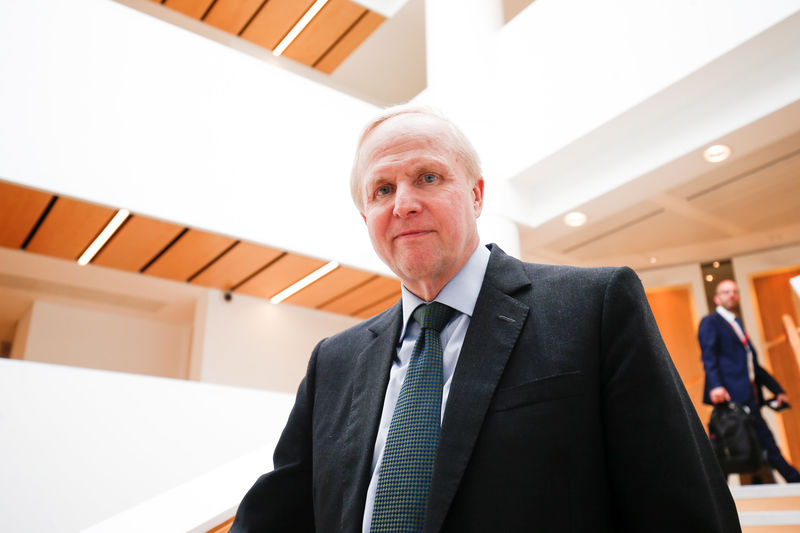By Ron Bousso and Dmitry Zhdannikov
LONDON (Reuters) - BP (LON:BP) Chief Executive Bob Dudley expects a flood of U.S. shale and the reopening of OPEC taps to cool the oil market after crude rose above $80 a barrel this week.
U.S. President Donald Trump's decision to exit an international nuclear deal with Iran and revive sanctions on the OPEC member country, as well as Venezuela's plummeting output, has helped to lift oil prices to their highest since 2014.
But BP sees oil falling to between $50 and $65 a barrel due to surging shale output and OPEC's capacity to boost production, Dudley told Reuters.
"Clearly the withdrawal of the United States from the Iran nuclear deal has brought a lot of uncertainty to the market," he said in an interview.
Crude exports from Iran, the third-largest member of the Organization of the Petroleum Exporting Countries, could drop by 300,000 to 1 million barrels per day (bpd) as a result of U.S. sanctions, the CEO said, citing internal BP forecasts.
Dudley said he expected the figure to be "at the lower end" of the range.
UNHEALTHY
The 30 percent recovery in crude prices since February has given strong tailwind to oil companies such as BP, whose profits recovered last year after a three-year slump in the market.
The U.S. Energy Information Administration this month boosted its forecast of growth in domestic crude production in 2018 to an all-time high of 11.17 million bpd, as shale drillers accelerate activity.
The surge in U.S. output has been offset by deep supply cuts for over a year by OPEC and other producers including Russia.
OPEC's de facto leader, Saudi Arabia, assured key consumers that the world would have adequate supplies even if Iran's exports dropped sharply.
Markets have so far been able to absorb oil's rise without impacting demand growth, but Dudley said a sustained crude price of over $80 would be unhealthy.
"Two years ago, when the price was $27, it was great for global growth, the engines of the consuming economies, but it was terrible for producing countries and that led to producing countries not being able to purchase things as well. That was not a healthy price."
"I think when you get above $80, it is not a healthy price either."
Although the International Energy Agency this week cut its outlook for oil demand growth in 2018 due to rising crude prices, BP still expects consumption to expand by 1.7 million bpd, extending a period of strong growth.
The world has experienced an unprecedented decade of economic growth that is likely to continue even with sanctions and trade tensions between the United States and China, Dudley said.
"We're about to begin to see political factors creating trade dislocations, sanctions and things like that. They will have impacts here and there but the overall economic growth rates appear to be not overheated," he said.
